Faces of Jingmaishan 3: Grandma's Milk Tea
Chatting with a middle-aged milk-tea vendor about the development of her village
This is Part 3 of my four-part Faces of Jingmaishan series, which are short vignettes of people I met and conversations I had in Jingmaishan, a tea mountain in southern Yunnan, west of Xishuangbanna, close to the border with Myanmar. You can read Part 1 here and Part 2 here. This content was originally posted as a twitter thread on 20 March 2024. It has been edited lightly for essay format.
I find Grandma sitting in front of her timber home, carefully tending a small charcoal fire. The sign behind her says "Grandma's Milk Tea".
"Grandma's Milk Tea? So...are you the grandma?"
"Yes, the grandma is me!" she replies cheerfully with a broad smile.
"How much for a cup?"
"Fifteen yuan. Do you want to try?"
"Okay, we'll have one please"
She motions us to sit on some small stools next to the fire while she prepares a small ceramic pot over the charcoal fire with the drink’s ingredients, a combination of Pu'er tea, dried flowers, milk, and rock sugar.
We're at Wengji Village, (翁基村) a small natural village in Jingmaishan. It's a Blang ethnicity (布朗族) minority village with a total population of 334. It is a very minor tourist attraction. On the popular Chinese travel app Ctrip, it has just 31 reviews.
That's why I'm here - I'm trying to get off the beaten path. I’ve had Wengji Village on my radar for at least a year, and I’m thrilled to have finally made it out here (it wasn’t simple).
"How long has the village been opened to tourists like this?" I ask, as she tends the fire.
"Ooo, I don't know. Not long. Since 2013".
"Where do tourists usually come from? I guess mostly people from Yunnan? Kunming?"
"Yes, from Kunming...and Sichuan"
"Is this what you do now? Sit here and sell milk tea to tourists?"
"Yes"
"Is it better than working on the mountain?" She laughs cheerfully. "Yes of course"
"Do you get a lot of customers each day?"
"Not bad. Recently not so many. But many people during the Spring Festival"
"I guess during the Spring Festival, the village will be filled with tourists"
"Yes...so many"
"Is it good for the village?"
"Yes, good. They spend money here."
"When there's too many people, do you ever want to close shop?"
"Yes I do! hahaha". Again with her cheerful laugh.
A young boy, about 8 years old, emerges from the house behind. He looks sullen and angry. He is holding a short stick, which he uses to smack the walls and ground. He's complaining loudly, but in a local language, so I can’t understand anything. Grandma says something to him in a soothing tone, but it doesn't help.
What's wrong?"
"He's upset. He's waiting for his dad to go to Mangjing Village to pick up his parcel, but dad's too busy. He's really looking forward to this package. He waited all week."
"You can't get packages delivered here?"
"No, we pick it up in Mangjing" (about 3km away)
"I didn't see a school in the village. Do all the kids go down the mountain to Huimin Town for school?"
"Yes, the school is in Huimin. But my grandson goes to a school in Lancang County"
"That's pretty far away. So he's only home on the weekends?"
"That's right"
A man emerges from the shop across the road, straddles a motorbike, and calls something to the boy, who cries out, tears brimming in his eyes. He goes back inside the house but the sound of the stick smacking into walls continues, interspersed with plaintive wails. The man laughs helplessly.
"He told my son he has to help a guest, so he doesn’t have time now to go get the package" Grandma explains.
Something falls over in the house and a clattering noise rings out, followed by a woman's angry yelp. Dad stops chuckling and narrows his eyes, peering inside. This body language here is universal…someone’s in trouble now.
"Well Grandma, I think your village is special. I have traveled to a lot of small villages like this in China, but this is definitely the most traditional village I have seen. It seems the tourism has not affected the environment here."
"Yes, we don't have many tourists"
"Well, let me tell you the future. I noticed there are signs for homestays now in the village. I guess this is the beginning...right now, you are still welcoming tourists to stay in your traditional home, like in a space room in your old house. But in the future, you will be able to build a new home specifically to receive guests". Soon, the whole village will be filled with guesthouses. Enjoy it while it’s still peaceful!
I point across the street. "I saw online there is a new guesthouse in this building, next to the shop. I guess the renovation just finished?"
"Yes...was was so loud"she replied."Every day, the noises sounded like dadadada"
As if on cue, the grinding whine of a jackhammer rings out elsewhere in the village.
"Yeah, I can imagine" I responded. "I guess it must have sounded like that noise now. I'm glad I didn't stay here. I guess I would have been woken up this morning."
"That sound is from ours". She grins at me. "We're building a new guesthouse right now, on top of the old home".
"Ohhh, that's yours! Just like I described!So first, your neighbors annoyed you with their loud renovations and now you are paying them back?"
"Yes, that right. hahaha"
The tea is ready. She pours it into a plastic cup and I continue to chat while drinking. It tastes mostly like normal milk tea, but very floral, thanks to the addition of the dried flowers.
"We have special requirements for the new construction in the village. It has to be the same style as old houses. If you build a new house with concrete, the government will remind you to cover it with wood."
She points at the shop across the street. "He will have to install wood there to cover the concrete."
A tourist family walks by. I decide to have a bit of a laugh myself.
"Hey Grandma, here come some people. I'll help you with sales."
"Hey! Authentic Jingmaishan roast tea over here! Have you ever tried it? It's good! You can't get it in the city!" I call out to the other tourists.
Grandma laughs. The family walks over and ends up buying a cup of tea for their son. I feel immensely accomplished.
"Hey Grandma, do you normally wear these traditional clothes?"
"Yes, these are Blang traditional clothes"
"How come the men don't wear theirs? Only women?”
"The men...they don't usually. They only wear it for holidays. Like Splashing Water Festival."
"Or a wedding?"
"Yes, or a wedding"
"But the women wear it all the time?"
"Yes"
"What about young people?"
"Young people...they don't wear the traditional clothes either"
I don't want her to feel like I'm grilling her, so I decide to just sit, relax and enjoy the rest of my tea in the warming sun.
Wengji Village feels frozen in time. It really would be a perfect traditional village scene, were it not for that damn jackhammer in the background.
But of course, despite my admiration of the unspoiled vibe, the creeping signs of modernity are unmistakable. For example, children everywhere here are running around with new smartphones, sleek new technology contrasting starkly with the rugged traditional wooden buildings and lifestyles.
And of course, there's signs of construction everywhere too. This pristine traditonal atmosphere won't last for long.
I caught this villager working hard on his home renovation:
There are a few guesthouses here, but they’re all quite rustic. If you're keen to spend the night on Jingmaishan, I recommend staying in Mangjing and visiting Wengji in the morning or evening like we did. Most visitors are day-trippers, so you'll get a much better vibe in the morning/evening.
That’s it for Part 3 of 4 of the Faces of Jingmaishan series, sharing my small everyday conversations with regular people living in the Jingmaishan region of southern Yunnan. Next time, a barista transplant from the northeast tells me what it’s like to run a coffee shop in tea country.



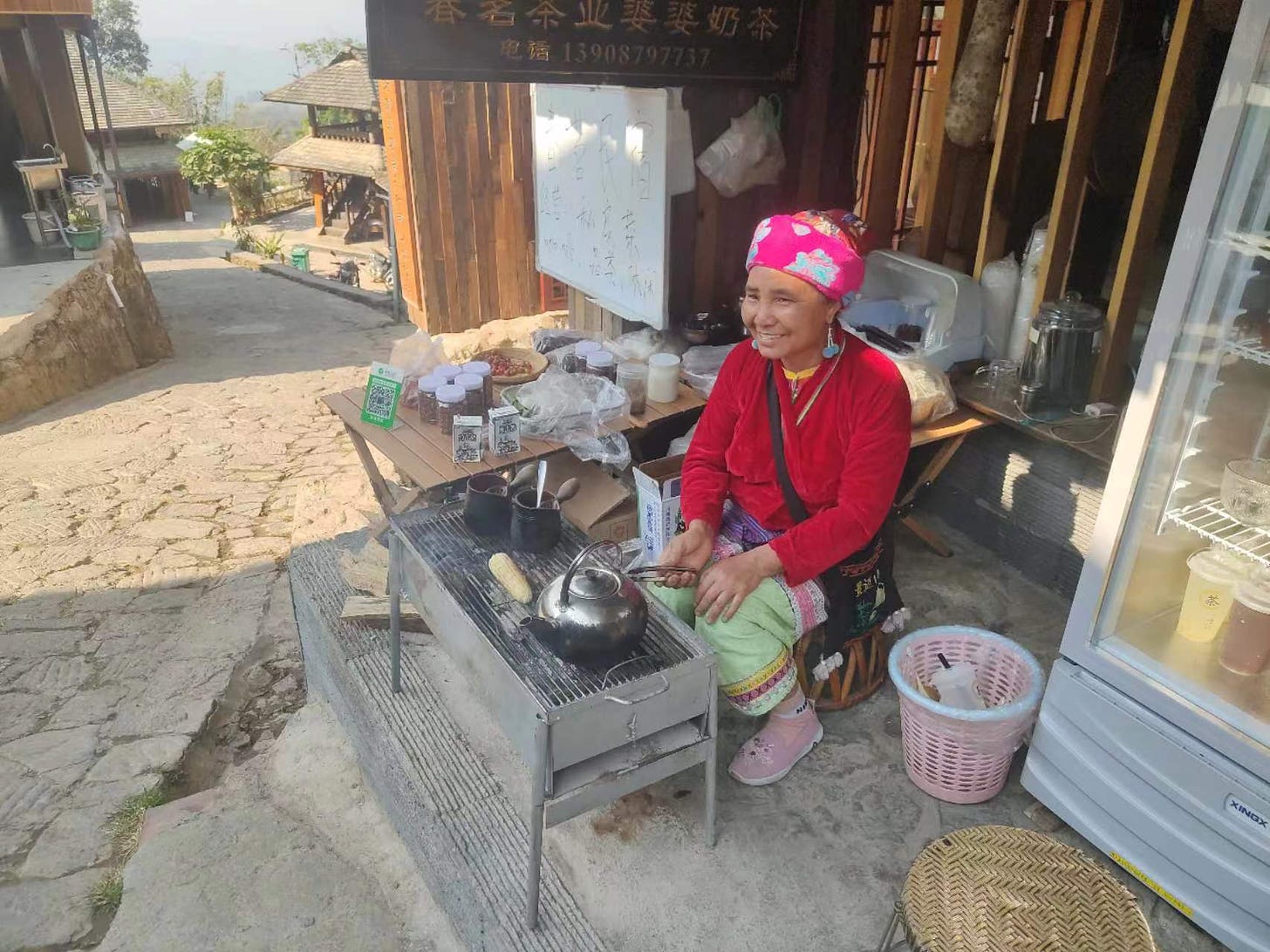
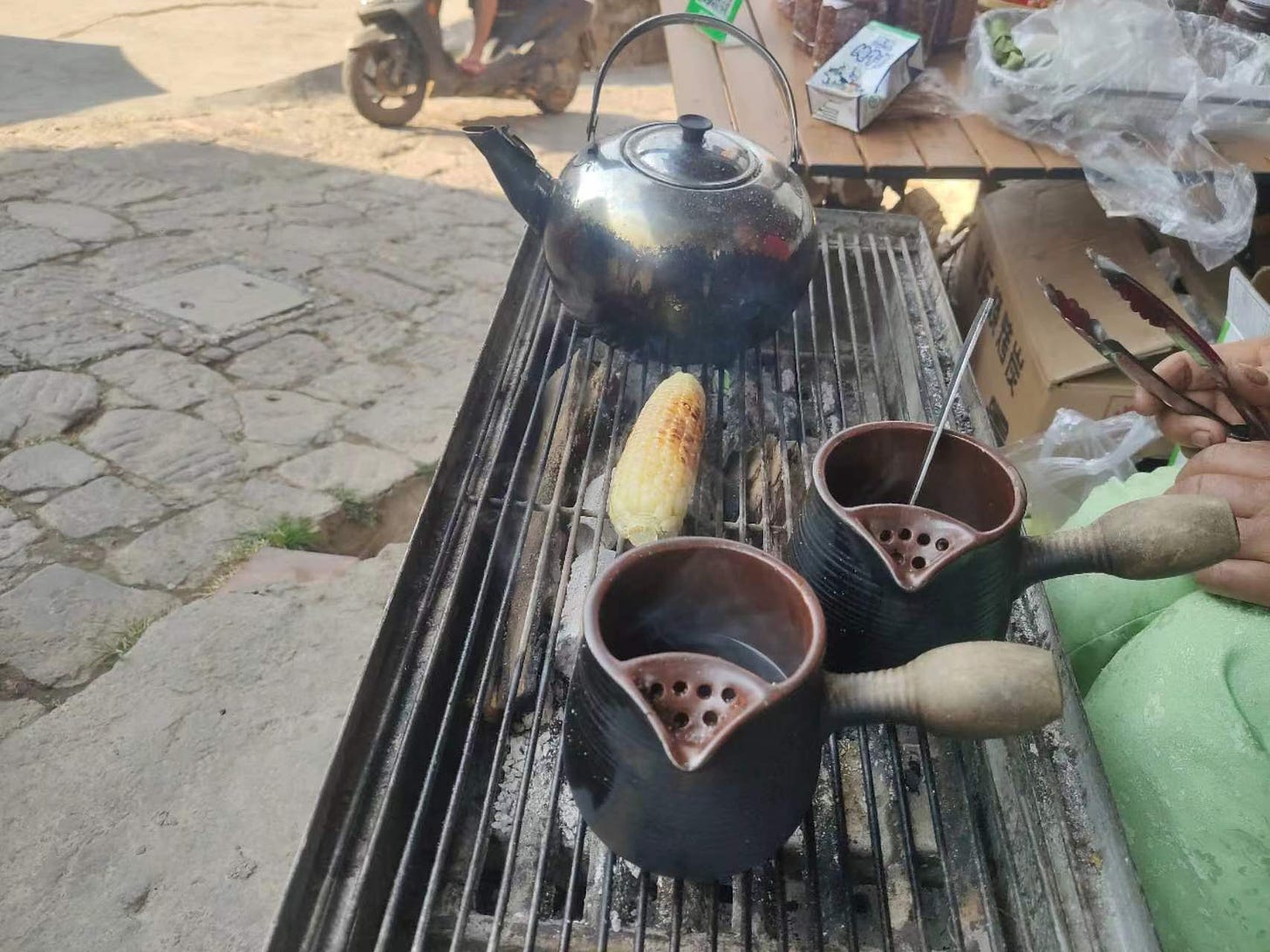
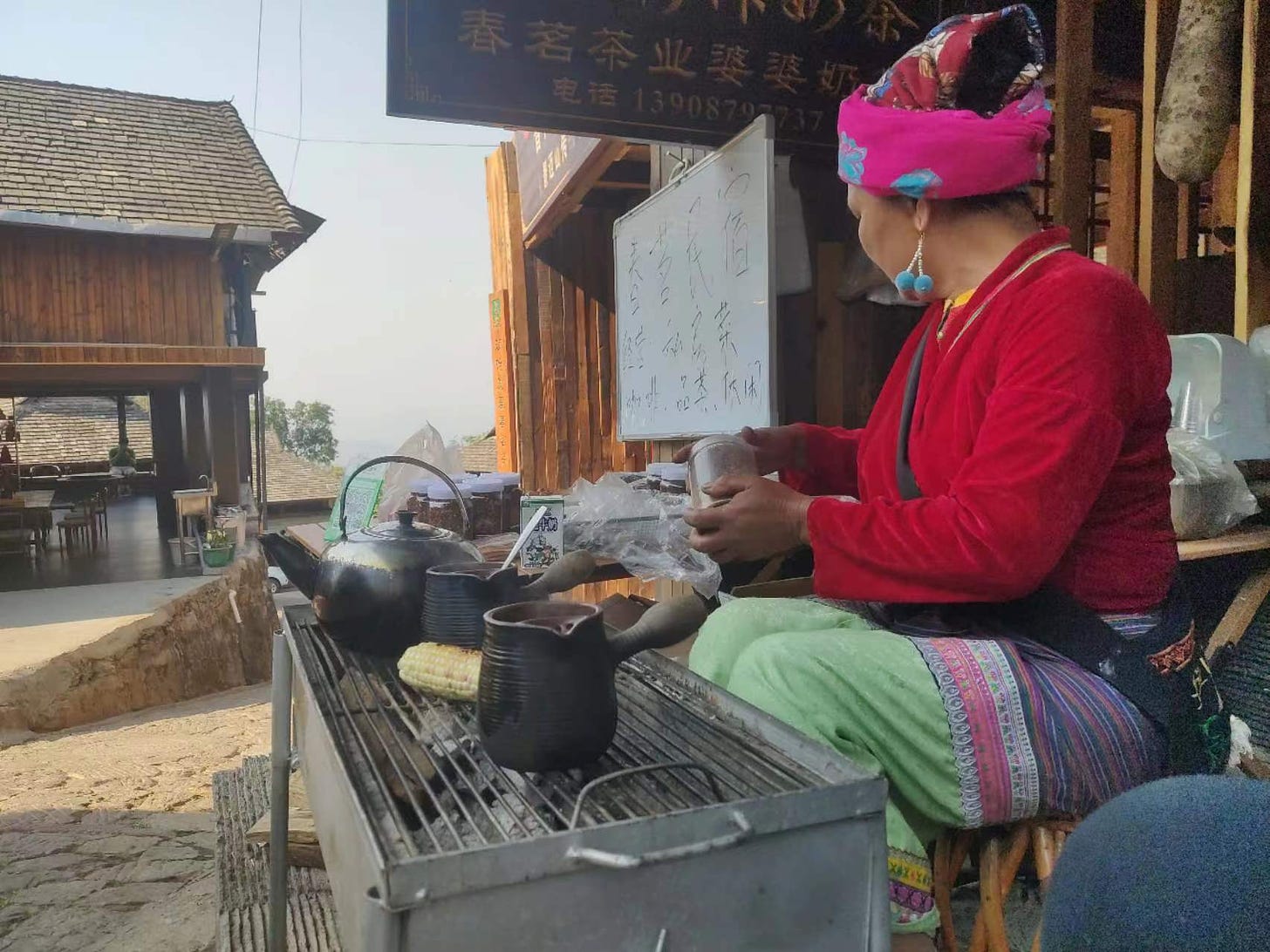
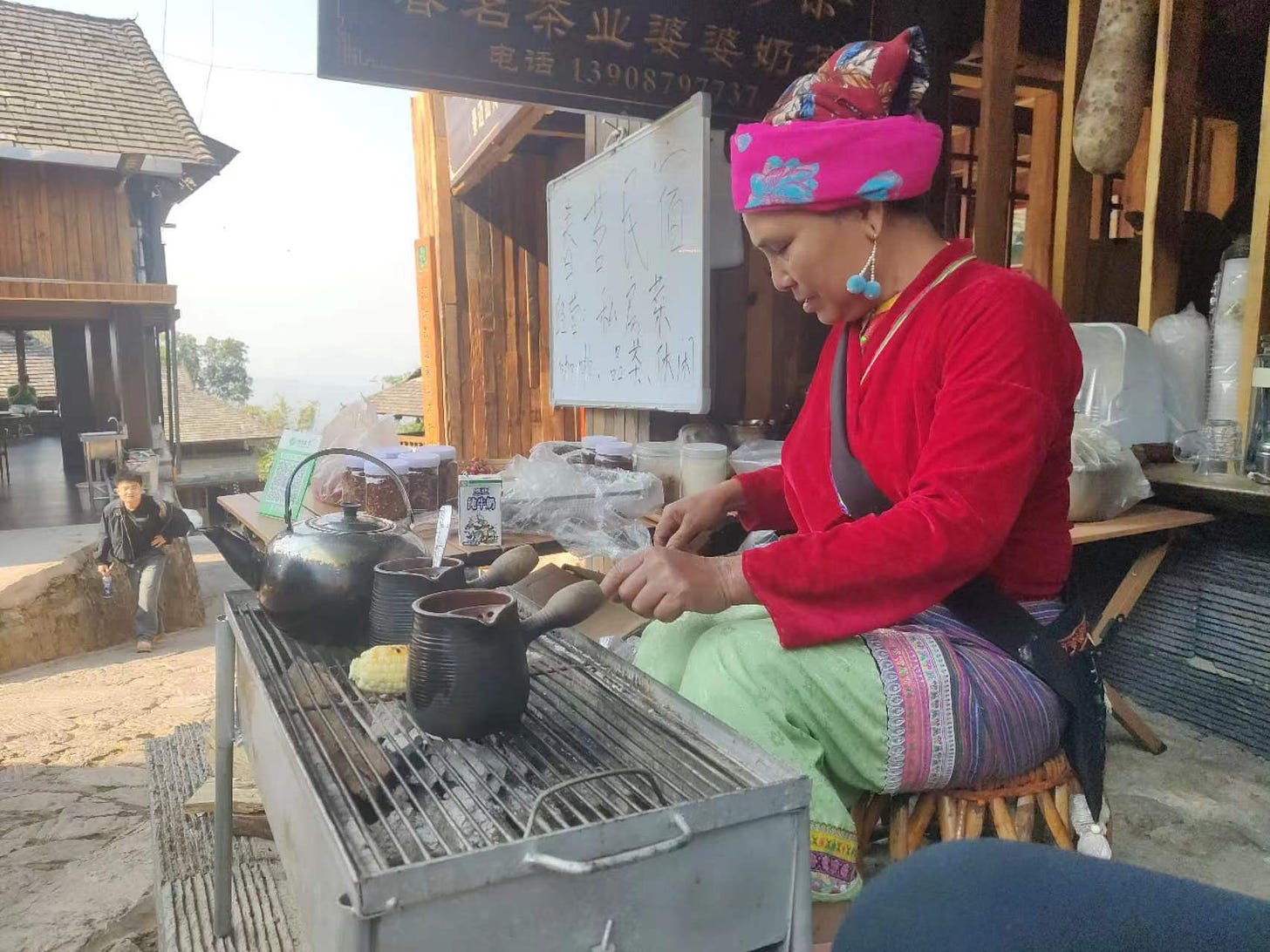
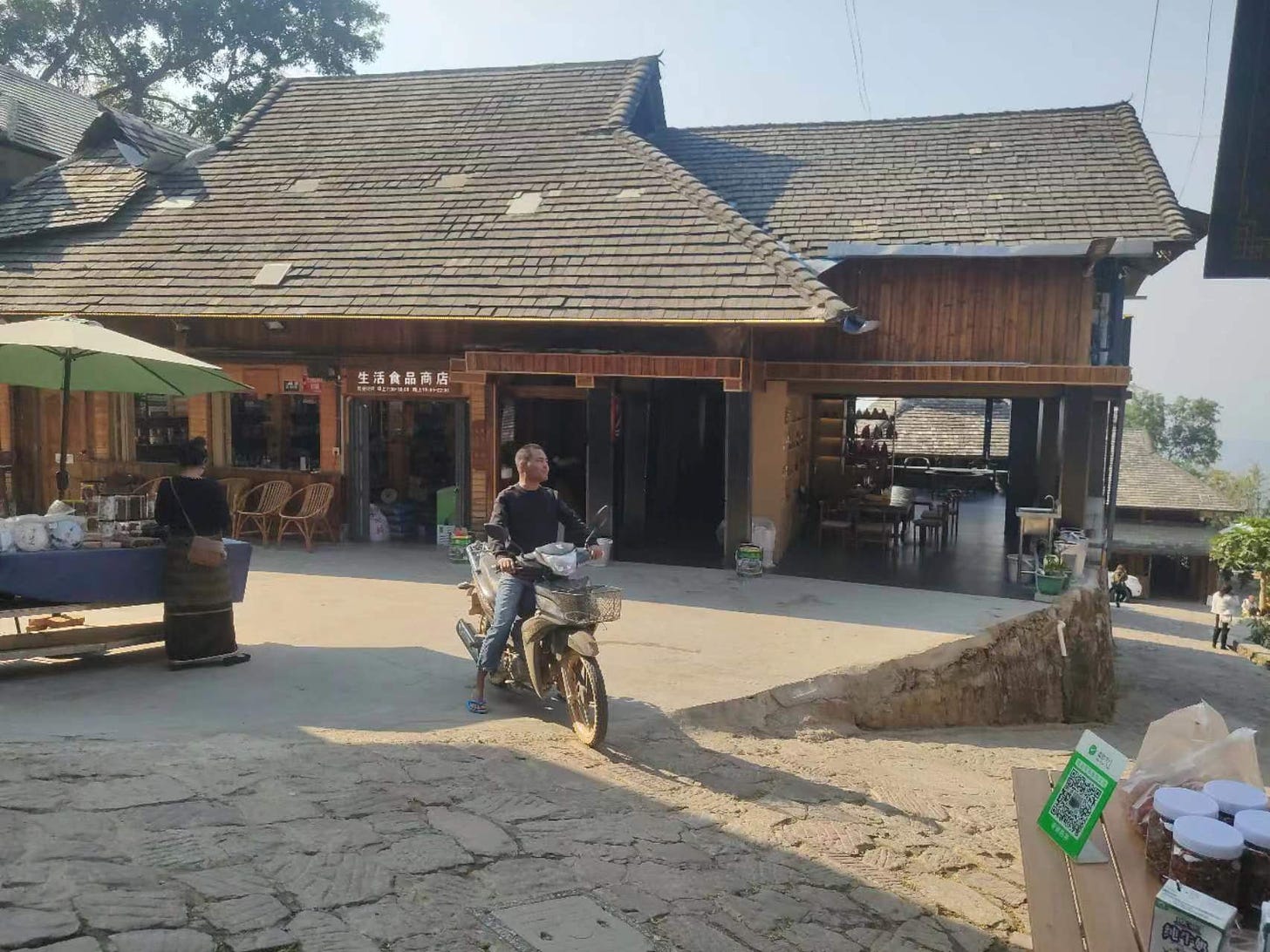
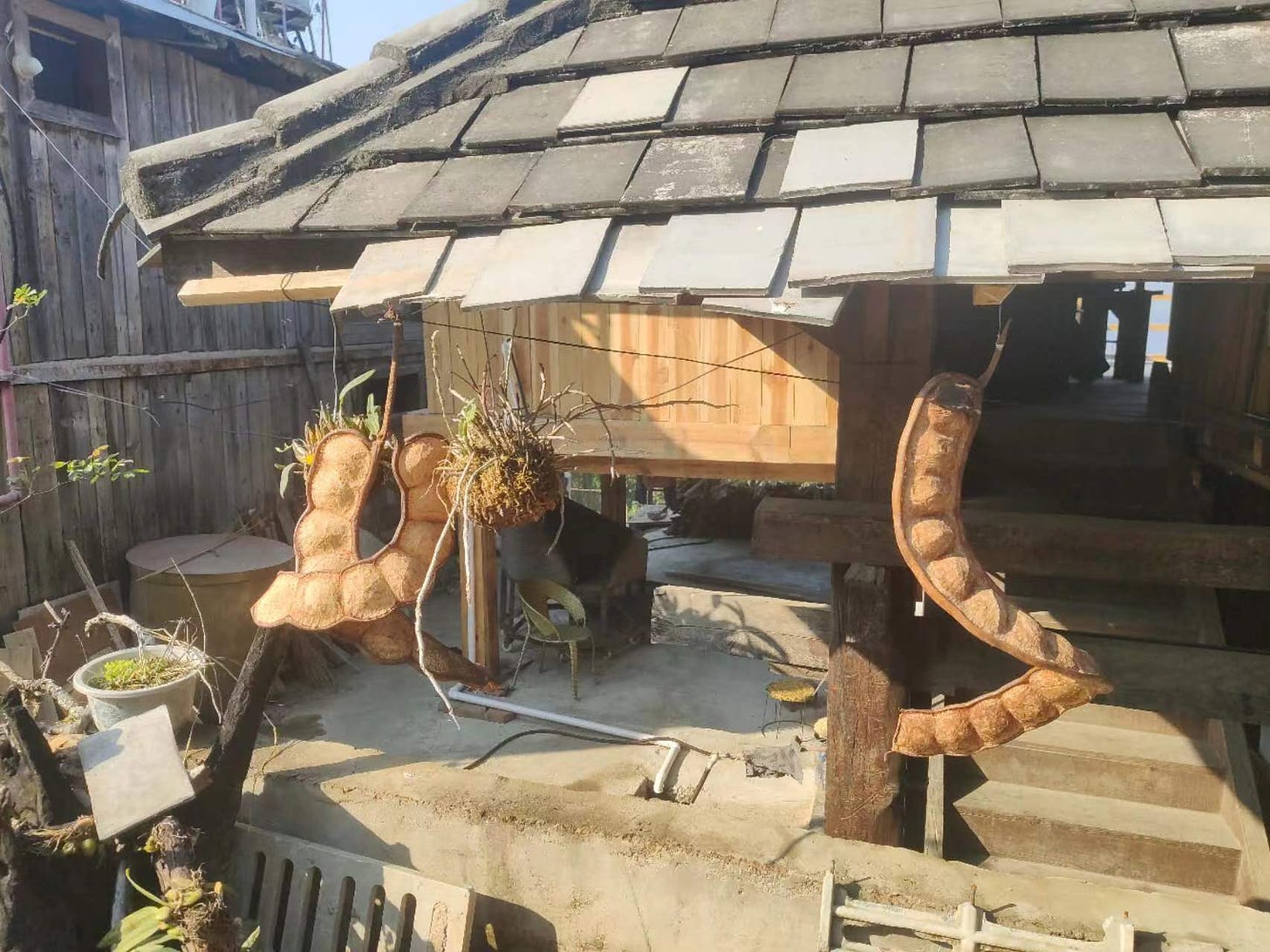
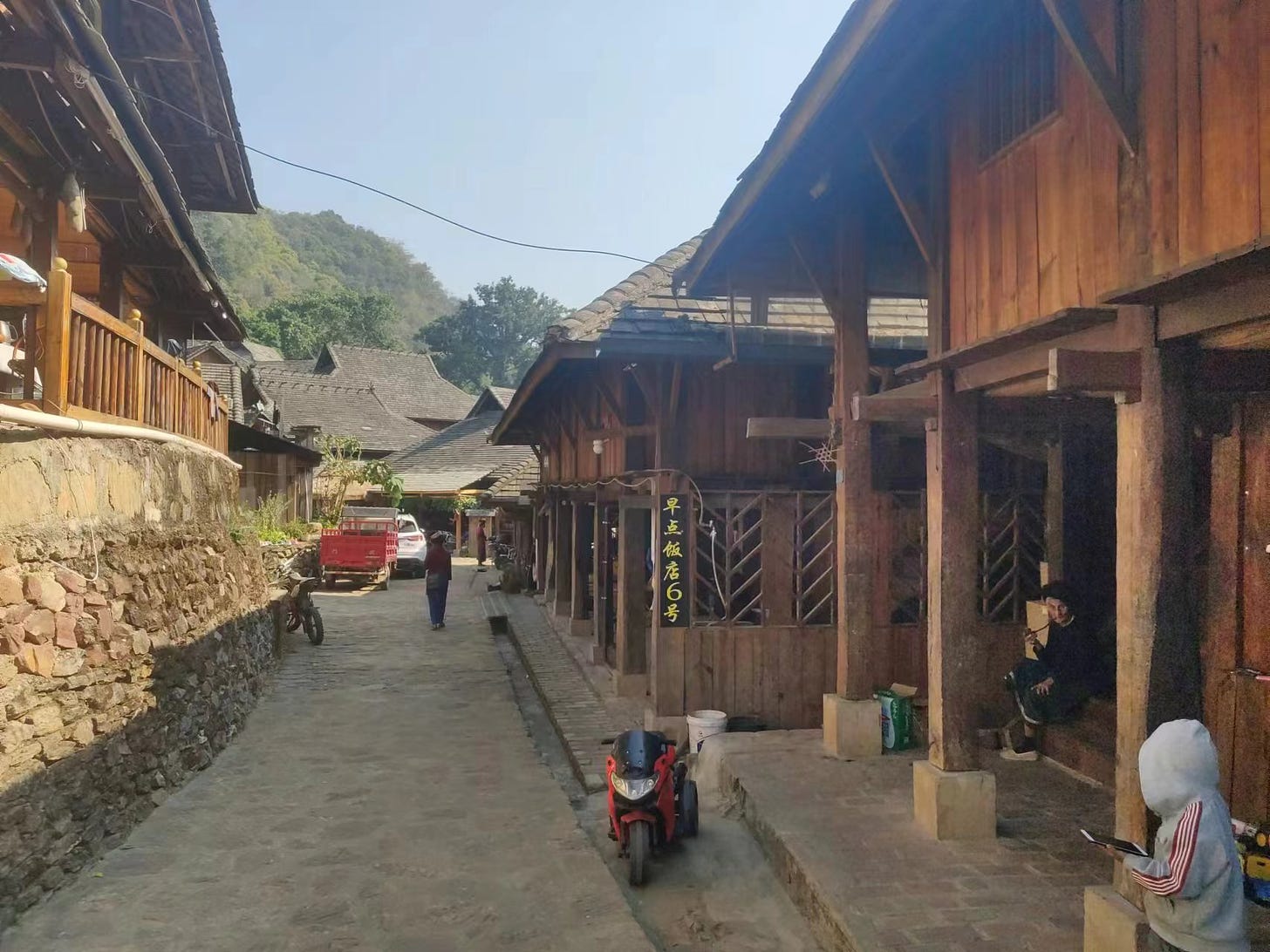
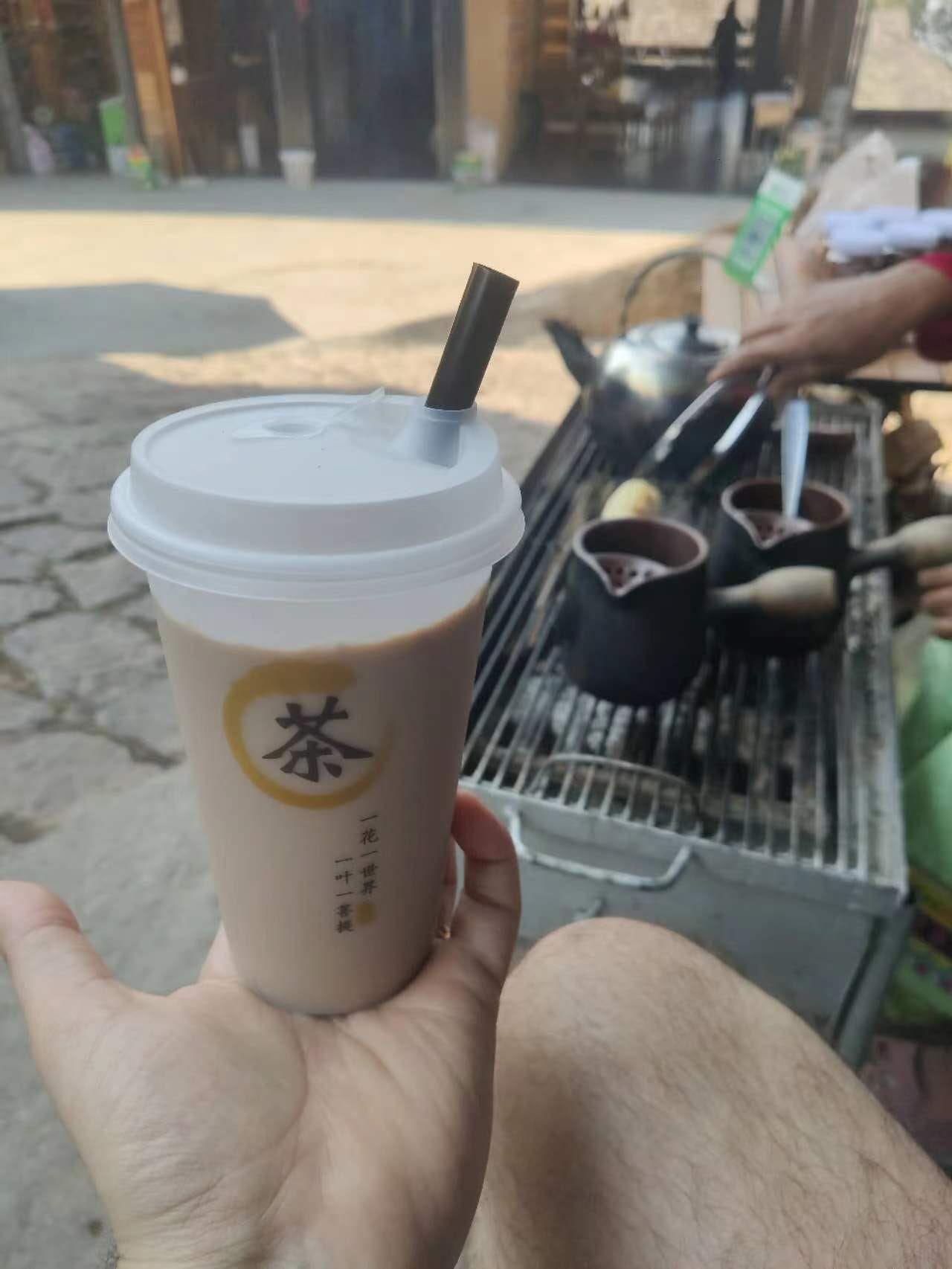
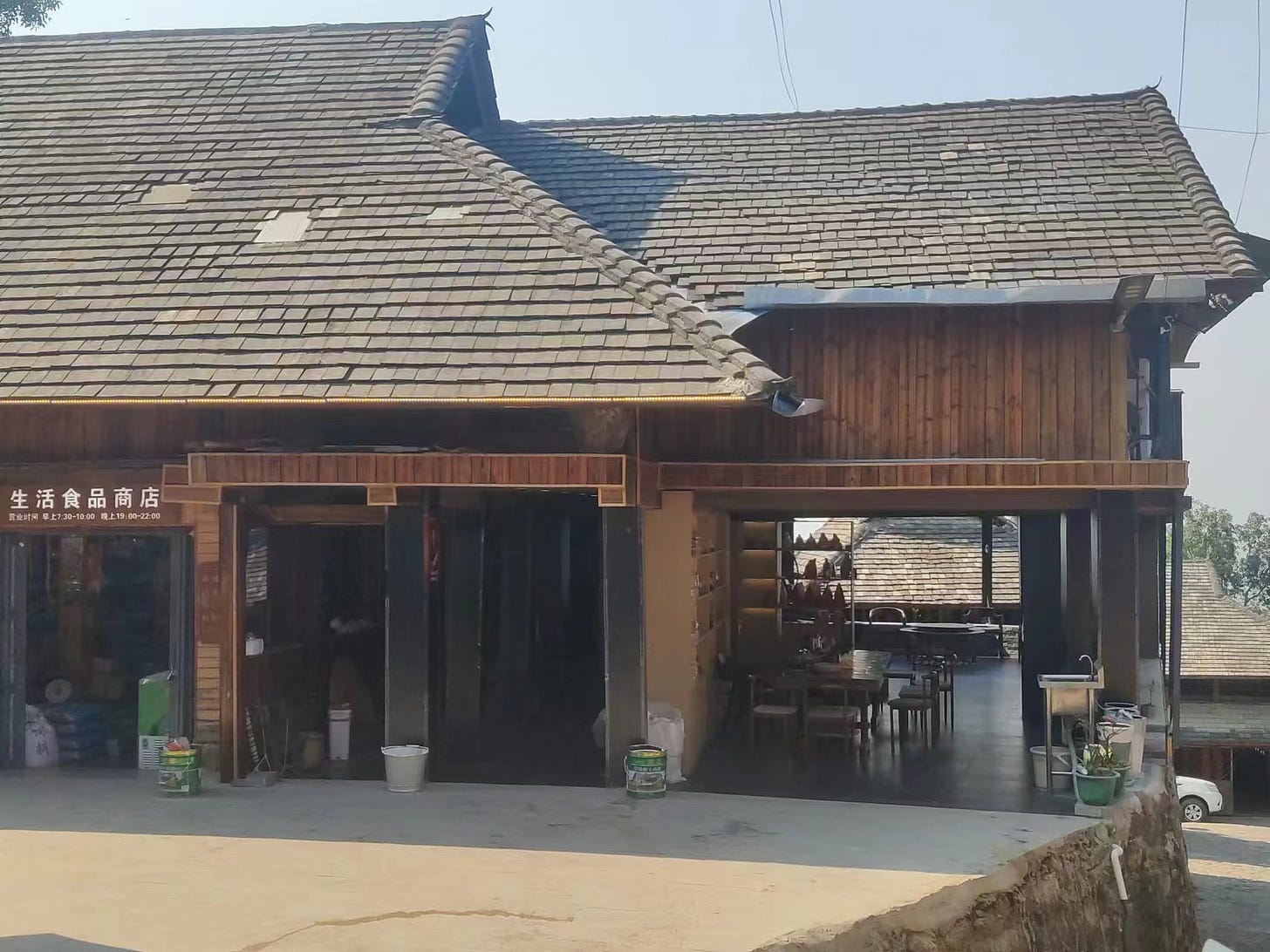
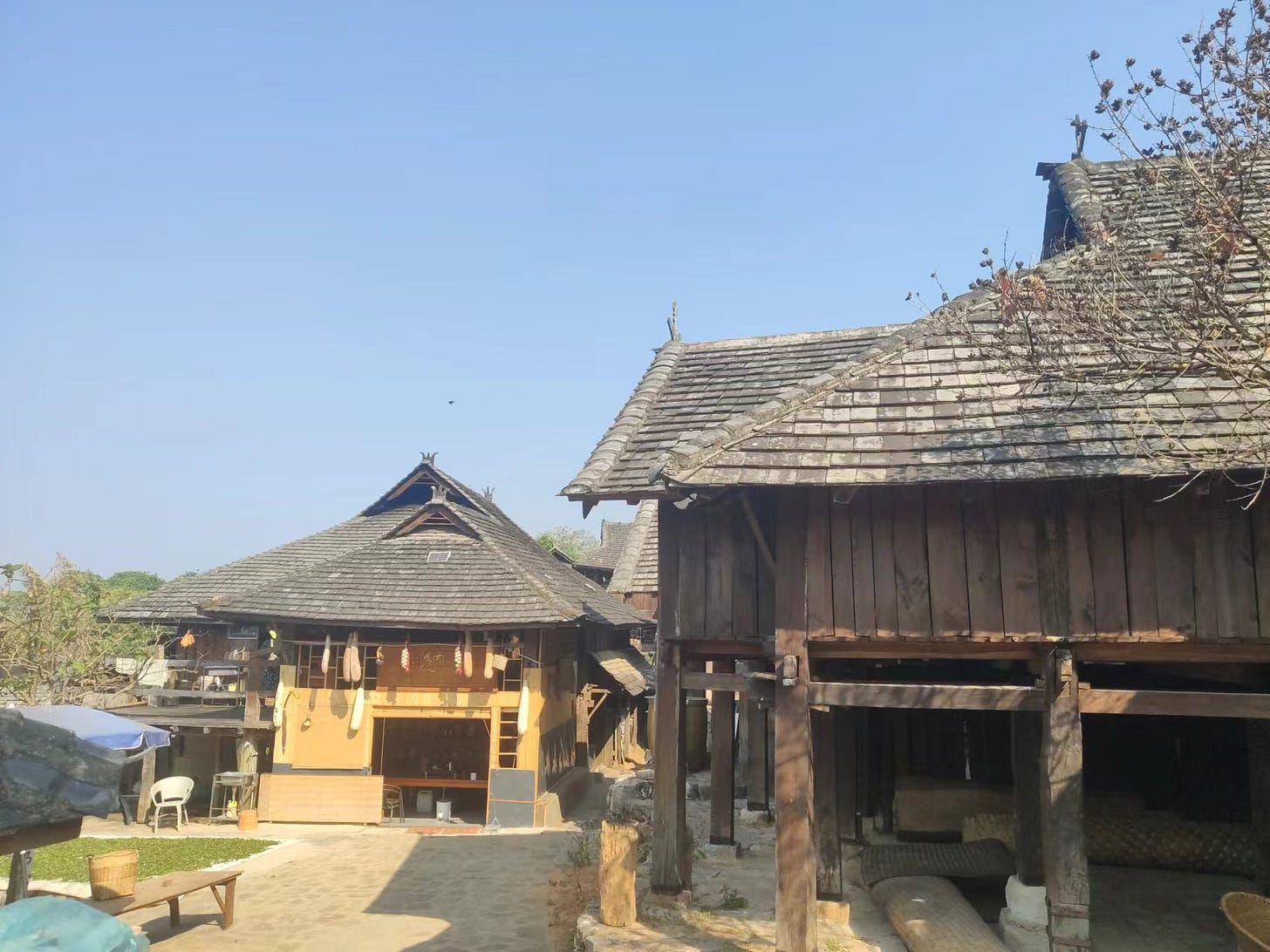
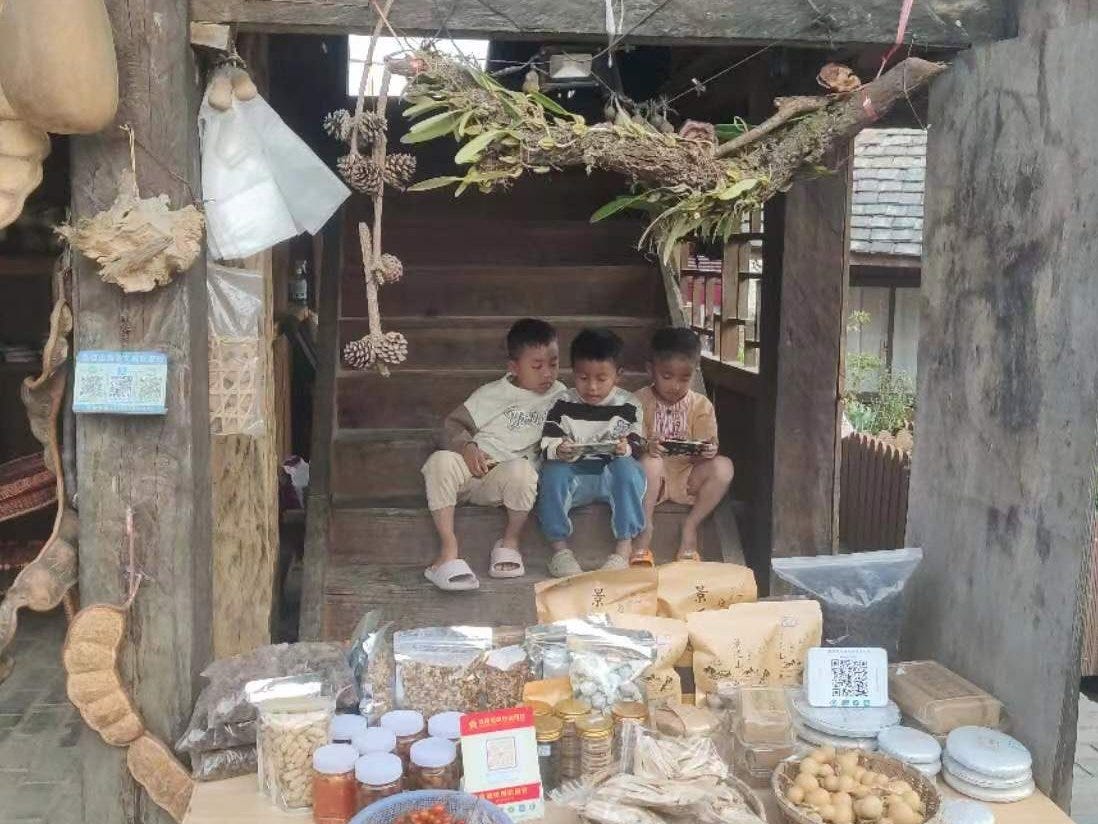
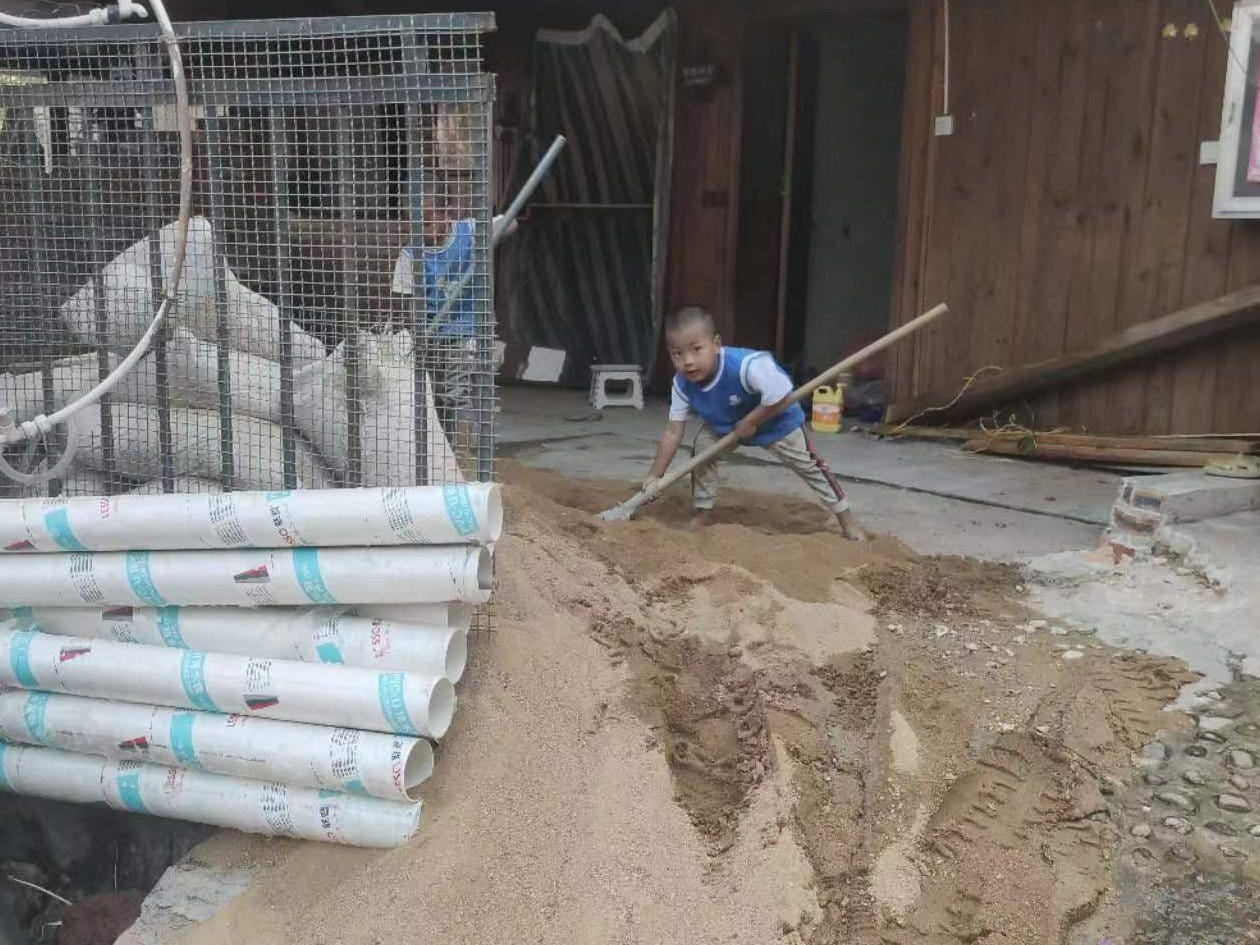
Thank you for sharing all your amazing stories! They’re so good that I read through “almost" all of them in one sitting!